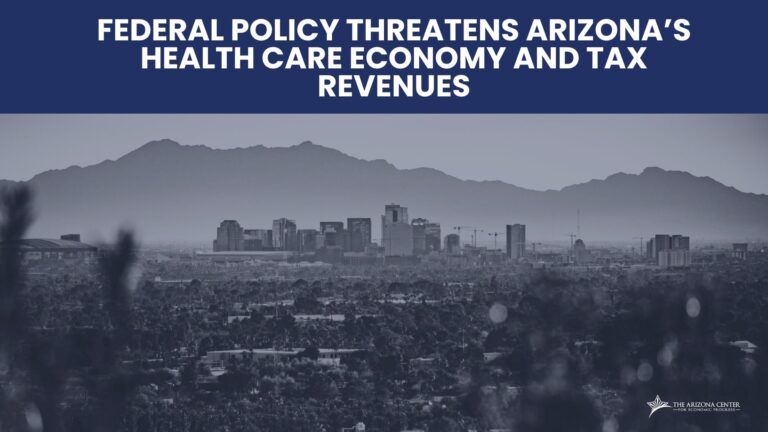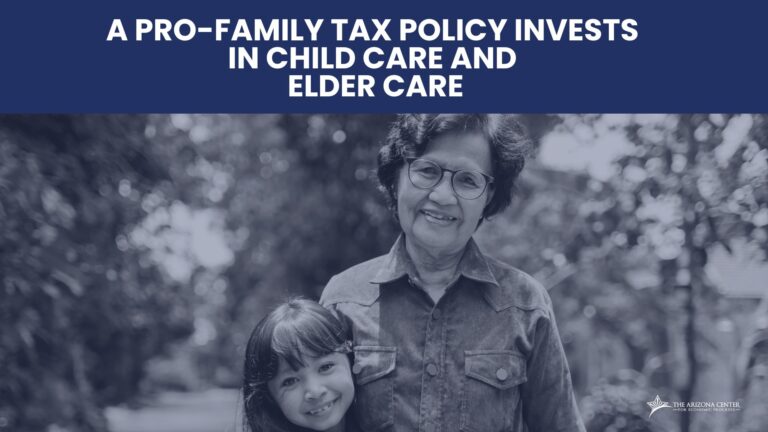
Supermajority Requirement for Raising Revenues Jeopardizes Arizona’s Economic Future
Arizona’s constitution requires a super-majority (two-thirds) vote of both chambers of the legislature to raise revenue through increased taxes or to reduce or eliminate tax credits, tax exemptions, or deductions – even when they find those tax giveaways to be ineffective. Since this requirement was approved by Arizona voters in 1992 via Proposition 108, raising revenues through the Arizona legislature has been nearly impossible. The supermajority requirement is a significant barrier to adequately funding Arizona’s public schools, universities, and other priorities that are key to developing the skilled workforce that Arizona will need to be economically competitive in the future. The supermajority requirement is particularly harmful to Arizona’s communities of color because it exacerbates their underrepresentation in Arizona’s legislature, diminishing their power by making it more difficult to achieve their policy objectives.
Since voter passage of Proposition 108, the legislature has been unable to meet the two- thirds threshold necessary to raise revenues through a tax increase. In contrast, tax cuts – which only need a simple majority vote to pass – have been enacted every year but one since 1992, shrinking state revenues by more than $5 billion when adjusted for inflation.
Ballot Measures Have Become the Only Viable Way to Raise Revenue
With ongoing tax cuts negating any meaningful revenue growth, and with the two-thirds requirement making it nearly impossible to raise revenue through legislative tax increases, Arizonans seeking new investments in education or other priorities are forced to seek tax increases through citizen-initiated ballot measures. Critics of such ballot measures often argue that ballot measures are a bad way to establish tax policy because they cannot be amended and vetted in the same manner as bills which are debated and scrutinized through the legislative process. Yet, ballot measures will likely continue to be the method of choice for raising revenue so long as the two-thirds requirement continues to tie the hands of the legislature from being able to raise needed revenue on their own for important priorities.
Supermajority Requirement Diminishes Power for People of Color
The two-thirds supermajority requirement in other states can be traced to racist origins. In the post-Reconstruction era, wealthy white landowners in Mississippi demanded and won a constitutional requirement for a three-fifths vote in both houses of the legislature for all state tax increases, the oldest such requirement still on the books in any state. Delegates adopted the measure at a state constitutional convention in 1890, the same convention at which they disenfranchised nearly all of the state’s Black voters. Referring to his fellow convention delegates, the delegate who introduced the supermajority requirement stated, “All understood and desired that some scheme would be evolved which would effectually remove from the sphere of politics in the State the ignorant and unpatriotic negro.” While he was referring to the convention’s aim of stripping political power from Black people, the supermajority requirement further compounded the barriers that Black people faced in securing adequate funding for schools and other public services.
More than one in four people of color in Arizona live in poverty. The supermajority requirement creates a harmful barrier – blocking the path for the needed public investments which can address the impacts of racist policies and enable people of color to move up the economic ladder.
It’s Nearly Impossible to Roll-Back Special Interest Tax Breaks
Over the years, the legislature has enacted billions of dollars of special interest tax giveaways which only require a simple majority for passage. Among the tax breaks are sales tax exemptions for private jets, fine art, and tax credits to pay for scholarships to religious and other private schools. So many tax breaks have been provided to corporations over the past two decades that 74% of Arizona corporations are paying $50 or less in state income taxes and corporate income tax revenues have declined 50 percent since 2008. However, should Arizonans decide that any of these giveaways are not delivering the promised return on investment, or that public investments would yield greater benefits, it would take a 2/3 vote by legislators to repeal them – a rare occurrence since 1992.
Supermajority Requirement Harms Arizona’s Economic Future
Repealing the supermajority requirement in Arizona’s Constitution would require a vote of the people – either by a citizen-initiated ballot measure or by the legislature referring a measure to the ballot. With the supermajority requirement remaining in place, it is likely we will continue to miss opportunities for investment in what Arizonans want: stronger public schools, lower tuition and financial aid at community colleges and universities, increased affordable housing, affordable quality childcare and modern transportation and infrastructure.



